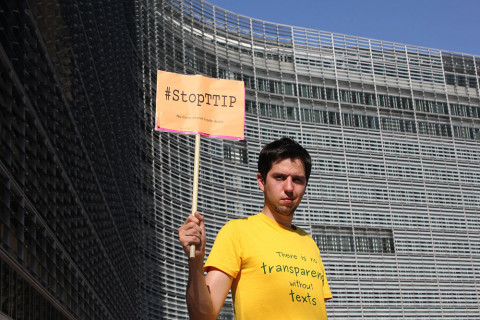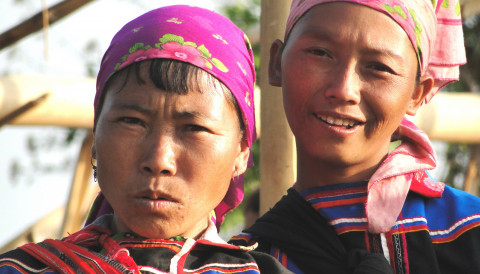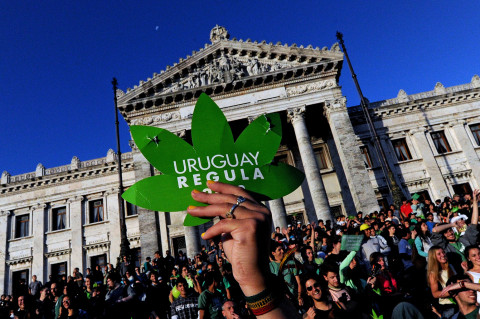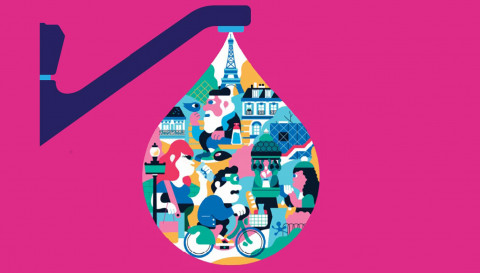Stories of success Impact and transformation
Do you think citizens have the right in a democracy to curb nuclear power or require ‘plain packaging’ for cigarettes to protect people’s health? Probably yes. But most people don’t know that these actions have led to states being sued in secretive investment courts for billions of dollars by global corporations.

Exposing ISDS
TNI started work in the mid 2000s to challenge the Investor-State Dispute Settlement (ISDS) mechanisms that have allowed corporations to sue states for introducing regulations that protect the public interest. It was not an easy task. Obscured behind a cloud of technical and legal jargon and with few people conscious of its impacts, ISDS was appearing in agreement after agreement with little public opposition.
TNI’s co-published report in 2012, Profiting from injustice : how law firms, arbitrators and financiers are fuelling an investment arbitration boom, helped to turn the tide. The report prompted major press coverage, angry rebuttals by investment lawyers, and was brandished by President Correa of Ecuador in his opening address to Congress. Backed up by many other TNI reports examining the costs of ISDS to public health, the environment and public services and accompanied by seminars, trainings, distribution through networks and alliances, a global movement started to mobilise and public consciousness and anger at ISDS grew. By 2015, the EU Trade Commissioner, Cecilia Malmstrőm admitted that ISDS had become the “most toxic acronym in Europe”
Internationally, more and more countries including Indonesia, Pakistan and South Africa have been emboldened to publicly oppose ISDS. The unprecedented pressure forced the European Commission to acknowledge the legitimacy of public concerns and to announce partial (and insufficient) reforms to ISDS. Meanwhile the tide of anger contributed towards the collapse of the TransPacific Partnership (TPP) and the stalling of the Transatlantic Trade and Investment Partnership (TTIP). These are significant victories, but TNI will continue to vigorously campaign for a complete end to unjust investor protection and for trade policies that prioritise human rights over profit.

Partnerships in Myanmar
In any given month, TNI staff can be found across the globe at workshops and meetings supporting local communities fighting for dignity. One of those countries, with which we have a particularly strong 20 year relationship, is Myanmar.
Our staff and researchers’ intimate knowledge of the country and the depth of their relationships with Burmese individuals and groups has been critical in the last few years as the country undergoes the most important time of political change in many decades. Having long worked to draw attention to the issues of ethnic conflict, TNI has played a constructive role in brokering dialogues, providing information and analysis, and sensitising international players to the dynamics of Burma’s transition from military dictatorship. Moreover, our expertise on drug policy, foreign investment and agrarian issues has provided invaluable resources for Myanmar’s nascent civil society as they struggle for an inclusive, sustainable and equitable form of development for the nation.
For example, in 2015, TNI facilitated, with partners, an unprecedented research project (+2600 respondents) on land grabbing and supported the creation of unique and new multi-ethnic, right-to-land network called Land In Our Hands (LIOH). This network has started to have an impact on national policy, as the new government included changes in drafts of the land policy concerning human rights and international tenure guidelines.
Similarly our research in 2010 and 2012 on the effects of Chinese opium-substitution programmes and the spread of rubber plantations within the country has also opened up critical conversations with Chinese government officials, Chinese academics as well as within the country.
Paung Ku, one of our partner organisations, says: “TNI is one of our closest and most knowledgeable international partners. Our organization is from Myanmar, and the context here is changing fast. The issues are difficult – from new land grabbing and consequences of irresponsible investment to old conflicts in ethnic areas that persist without true peace. Our struggle will be long term – and as much as anything, we need to learn from others’ experiences and build on similar struggles in other places. TNI is the place we often turn to for this.”

Drug policy solutions
TNI has been working for effective, just drug policies that minimise harm for 20 years, but has had to confront powerful governments committed to prohibitionist drug policies and an entrenched UN bureaucracy invested in the status quo. TNI’s strategy has been to produce compelling research on the costs of drug policies, to explore and promote alternative policies, give voice to those excluded from the drug policy debate (such as the farmers) and to promote dialogue and debate within governments.
Two decades on, the result has been that TNI has emerged as one of the world’s leading institutes on drug policy reform – unique for our technical and policy expertise and for our pioneering proposals related to farmer participation, harm reduction on the supply side and regulation of markets for cannabis and mild stimulants.
More importantly the deadlock on drug policy has been broken.
Drawing on our expertise and technical guidance, a number of countries in Latin America, the Caribbean and Europe have started to introduce reform, reducing sentences for small-time drugs trafficking, including farmers or prohibited crops in policy forums, and reversing cannabis prohibition. The requirement for consensus at the UN continues to allow a few countries to block reform, particularly of the main UN conventions on drugs, but it is clear that it is now only a question of time before further liberalisation of drug laws takes effect. Meanwhile, TNI continues to provide solid technical research on the need for reform, facilitate safe dialogue spaces for government officials to explore different drug policy approaches approaches as well as train drug policy advocates from across the world to be the new leaders for reform in the future.

Sharing public water best practice
In April 2000, the Bolivian city of Cochabamba rose up in what became known as the Water War and threw out the US multinational Bechtel that had privatised its water services and sharply hiked up the rates. It marked the beginning of an international movement against water privatisation that has spread worldwide.
TNI has been at the heart of that movement, but has also always known that it is not enough just to resist privatisation without putting forward public alternatives that would be effective and just. As a result, in 2007, TNI co-published a book that brought together the learning and experience from the best public water companies, as well as from struggles to remunicipalise services. The book gave birth also to a network of activists, researchers, trade unionists and public water utility managers, called Reclaiming Public Water, to support anti-privatisation struggles and continue the sharing of best practice.
Reclaiming Public Water, became a key member in the UN Habitat-formed Global Congress of Global Water Operators Partnerships Alliance (GWOPA) that supports public-public partnerships on water.
By 2015, it became clear that resistance to privatisation and a trend towards remunicipalising water services was gathering unprecedented steam. TNI’s book Our Public Water Future showed that 235 cities that have reversed privatisation of water services in the last 15 years – many of them as a result of work by partners in the Reclaiming Public Water network.
Alongside, this shift to remunicipalisation, TNI has also been an active member of movements pushing for access to water to be recognised as a human right. In 2010, the United Nations General Assembly explicitly recognized the human right to water and sanitation and acknowledged that clean drinking water and sanitation are essential to the realisation of all human rights. In Europe, TNI worked with its partners to mobilise almost two million citizens to sign Europe’s first Citizens Initiative that called for all EU inhabitants to enjoy the right to water and sanitation and which stipulated that water supply and water management should be excluded from liberalisation. This was adopted by the majority of the Parliament without major changes, but the Commission has yet to enact legislation and continues to promote public-private partnerships.